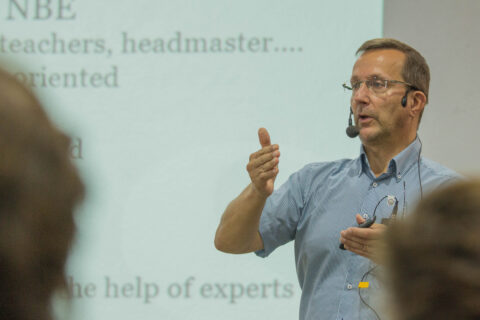No school or teacher inspections in Finland!
As striking it may appear, Finland doesn’t have any school inspections or teacher inspection of any form. Quality assurance in Finnish education is based on steering, collaboration and process evaluation instead of controlling. Steering is done through information, support and funding. The system relies on the proficiency and conscientiousness of teachers and other personnel. Local autonomy in education is extensive in Finland, and education providers are responsible for the quality of their own operations and may decide on the system of quality assurance they choose to employ.

In basic education schools (primary and lower secondary), ensuring quality is entrusted to education providers and schools. They are expected to conduct self-evaluation regularly. Significantly, the central government has no direct means to control the quality of local education. Its impact is indirect through aims to foster and promote the quality evaluation culture in schools and municipalities.
There is no MBO (Management by Objectives) policy as such in Finnish schools. The principal and teachers together set objectives for their school and assess later together whether these objectives were met or not (self-assessment). Teachers are not held accountable for their actions, but they are considered to be responsible for their work. Distinction: Being responsible for your work is an inner demand, posed by the education community and the person themselves. It means knowing that your work has consequences and other parties have expectations for it.
Responsibility is an inner calling to do your work as well as possible. Accountability on the other hand is always placed on you by someone else.
This operator who holds you accountable for your actions is superior to you and therefore has the final responsibility for your work as well.

Finnish schools don’t have review meetings outside classroom or duty-posts. Finnish system is based on trust, which is based on the fact that Finnish teachers are highly educated, respected and committed to their work. Furthermore, there are no reporting systems that would serve as a passive inspection. Schools do report to the education providers all kind of statistical data, and also if they are struggling with some issues and would need extra resources and support etc. This doesn’t, however, measure as a passive inspection.

We are aware that most of the other countries have a very different approach to quality assurance and school inspections and that’s why this may sound rather hard to comprehend. You are more than welcome to come to Finland to observe the system yourself during a study tour! Meanwhile, you might find these scientific articles helpful in understanding the Finnish approach.

